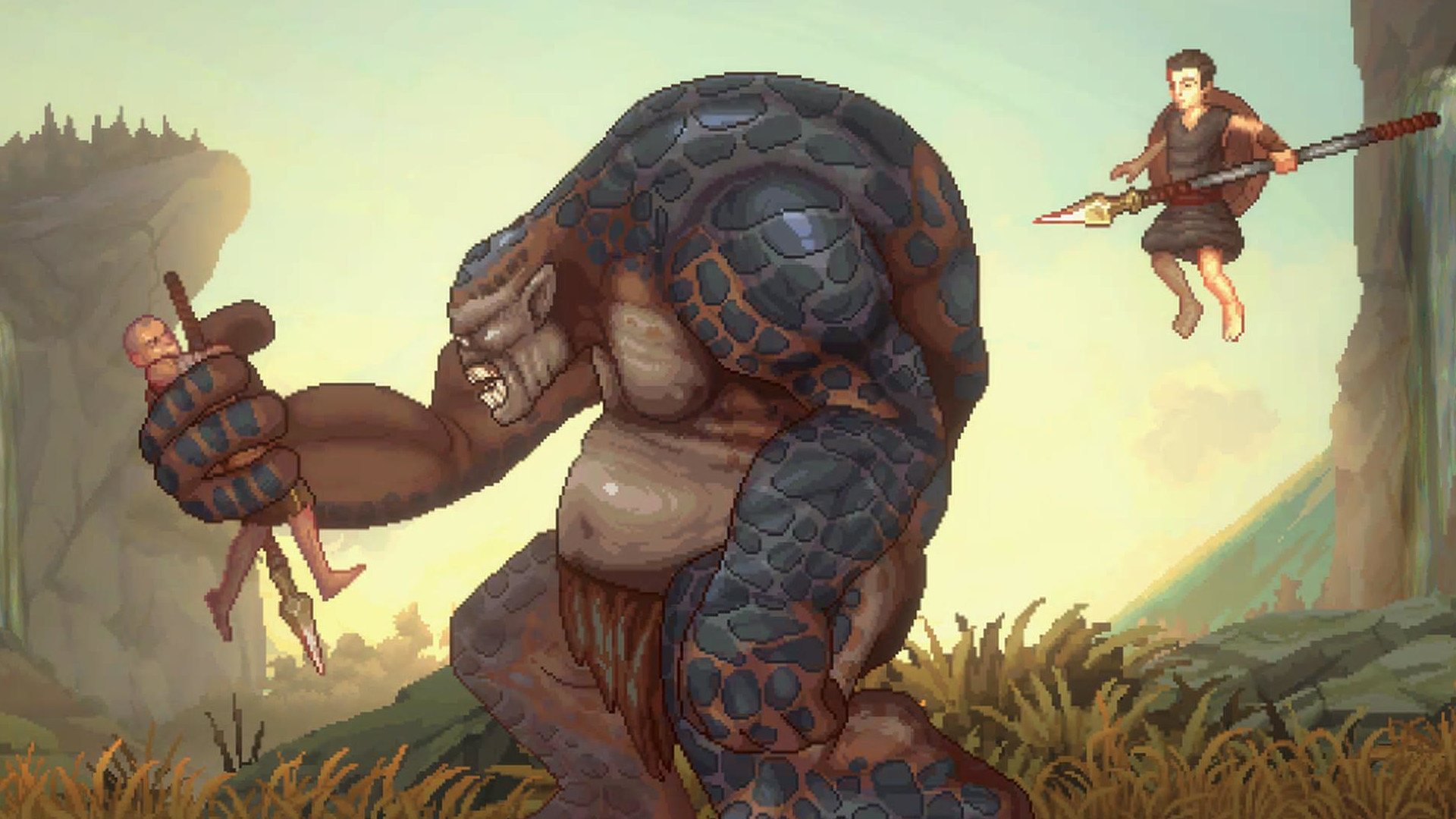Where should you start with the Atelier JRPG series? This cozy, witchy, crafting series is one I'm always eager to share with more people
Atelier is a long-running JRPG series that can be intimidating, but getting cozy with its witchy vibes is anything but once you finally jump in
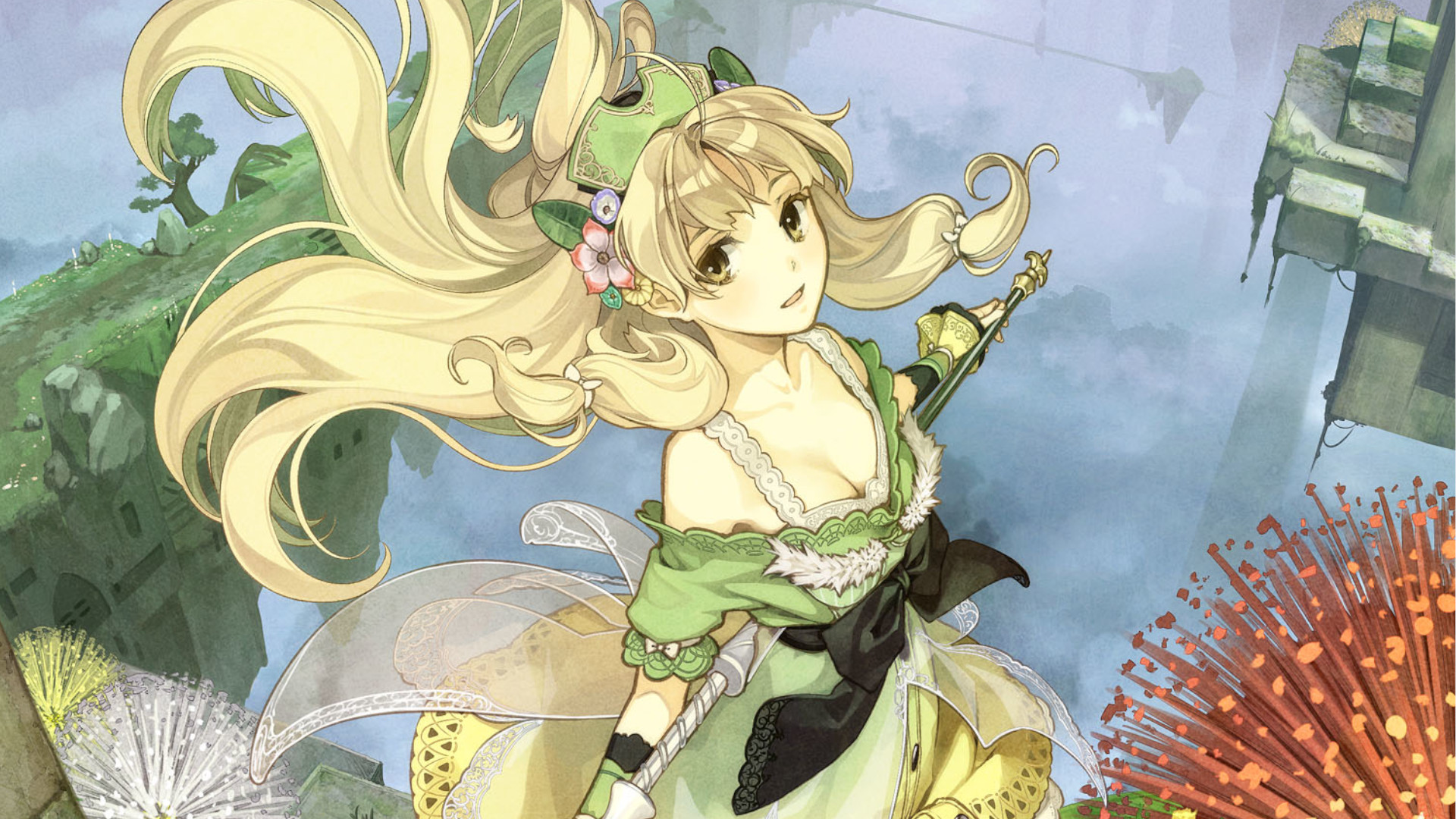
Weekly digests, tales from the communities you love, and more
You are now subscribed
Your newsletter sign-up was successful
Want to add more newsletters?

Every Friday
GamesRadar+
Your weekly update on everything you could ever want to know about the games you already love, games we know you're going to love in the near future, and tales from the communities that surround them.

Every Thursday
GTA 6 O'clock
Our special GTA 6 newsletter, with breaking news, insider info, and rumor analysis from the award-winning GTA 6 O'clock experts.

Every Friday
Knowledge
From the creators of Edge: A weekly videogame industry newsletter with analysis from expert writers, guidance from professionals, and insight into what's on the horizon.

Every Thursday
The Setup
Hardware nerds unite, sign up to our free tech newsletter for a weekly digest of the hottest new tech, the latest gadgets on the test bench, and much more.

Every Wednesday
Switch 2 Spotlight
Sign up to our new Switch 2 newsletter, where we bring you the latest talking points on Nintendo's new console each week, bring you up to date on the news, and recommend what games to play.

Every Saturday
The Watchlist
Subscribe for a weekly digest of the movie and TV news that matters, direct to your inbox. From first-look trailers, interviews, reviews and explainers, we've got you covered.

Once a month
SFX
Get sneak previews, exclusive competitions and details of special events each month!
Atelier is one of the longest-running JRPG series there is, with more games than just about any other, stretching all the way from PS1 to modern day. With incredibly long game titles, unintuitive naming systems for its sub-series, and constantly shifting mechanics, it can be pretty intimidating to get into. But, give it a try, and you'll find a rewarding, cute, and cozy series that centers female leads with a crafting system that empowers you to take the reins of difficulty curves for yourself. As far as I'm concerned they're some of the best JRPG games around just because they feel so refreshing.
Beginning in 1997 with Atelier Marie: The Alchemist of Salburg on PS1 (which was only recently made available in English for the first time in 2023), the series began to find its feet across PS2 and became more popular in English on PS3. Near annual releases mean the most recent mainline entry in the series, Atelier Yumia, is the 26th main game. But, with remakes, spin-offs, and lots of enhanced ports there's many more. As each game is so variable, where to begin may be a matter of taste, but I've got some great pointers for getting into the Atelier series, as well as some advice on whether this series is for you or not (but I really think you should give it a try regardless).
What is Atelier?
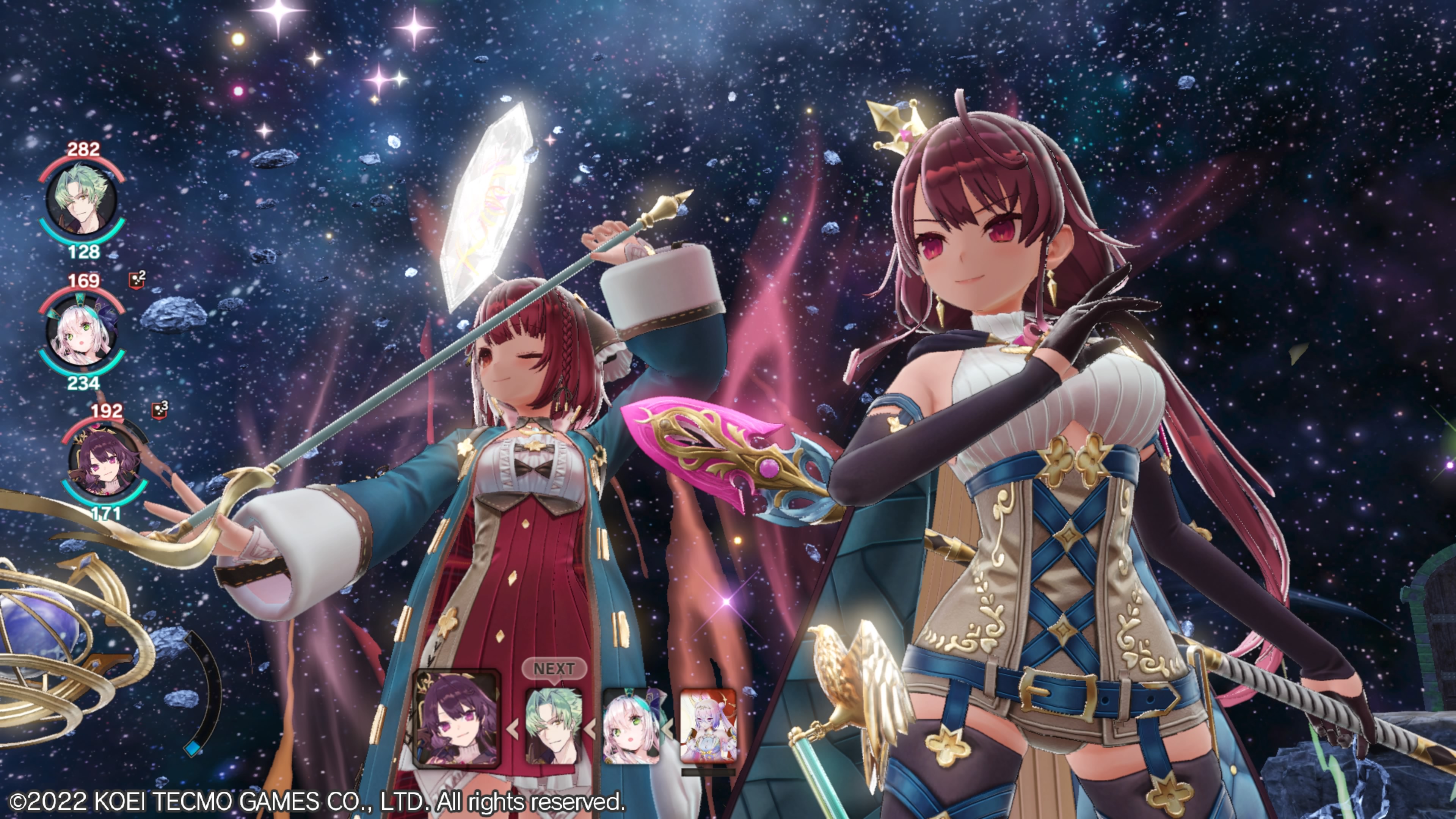
At its core, this is a JRPG series that's all about alchemy, and using it to craft progressively higher quality items and gear as you pursue a quest to become a better alchemist and to help out a community of townspeople and friends.
Many of the classic games structure this journey around an in-game calendar with time limits and grading systems, but this has been largely absent or softened for the past decade or so of releases. Building friendly relationships with other characters as you become closer with a community has always been important throughout the series, but has come to the fore as the time limit has faded into the background, allowing you to casually and slowly hang out with pals and clear just about every event as you work your way towards becoming the best you can be.
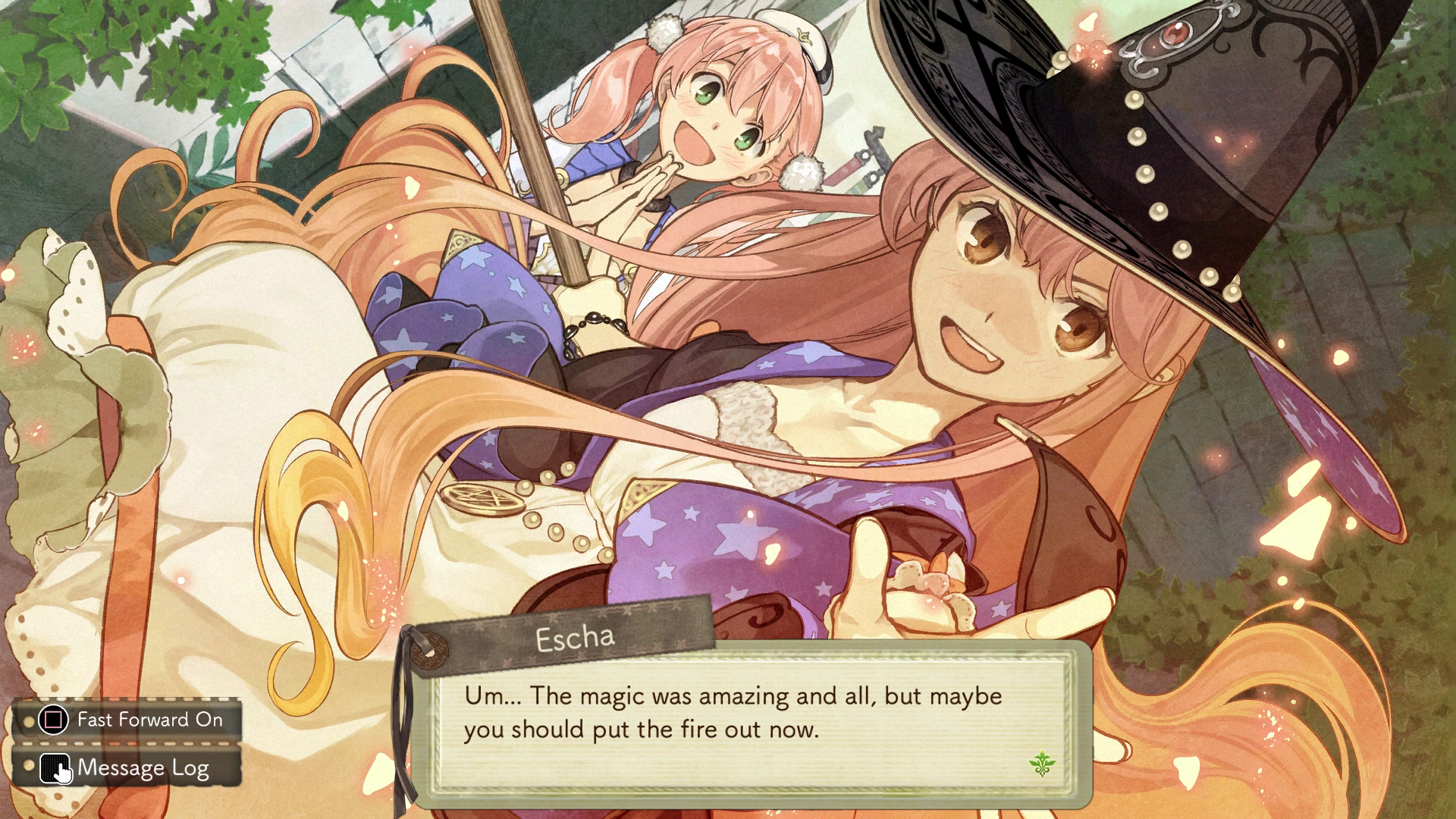
Not every Atelier protagonist is female, but the majority of them are – each with more outlandish and incredible fashion than the last. Character design is often striking, with outfits combining fantasy clothes with ribbons, bows, and modern streetwear trends. I'm far from a fashion expert, but many sport the kind of fits that I wouldn't think out of place from Ai Yazawa's manga (Nana, Paradise Kiss, etc). Female friendships are often centered as well, and most people in Atelier's world are largely friendly and benevolent. It all makes Atelier stand out as a really unique feeling JRPG that marches to its own drum. While some Atelier plots have large-scale stakes, I usually find I prefer the ones with the lowest stakes – where it's more about a character's personal journey than simply saving the world from some villain.
Play is usually split between distinct modes. Crafting at the Atelier has you engaging with each game's unique crafting mechanics, able to craft better items as you unlock new recipes and methods. Exploring, on the other hand, has you collecting alchemy ingredients in fields, and engaging in turn-based battles. While you can buy things like equipment and items, what's unique in Atelier is that you can always craft things yourself with alchemy for much better and customizable results – sometimes to almost delightfully game-breaking ends.
Where to start with Atelier?
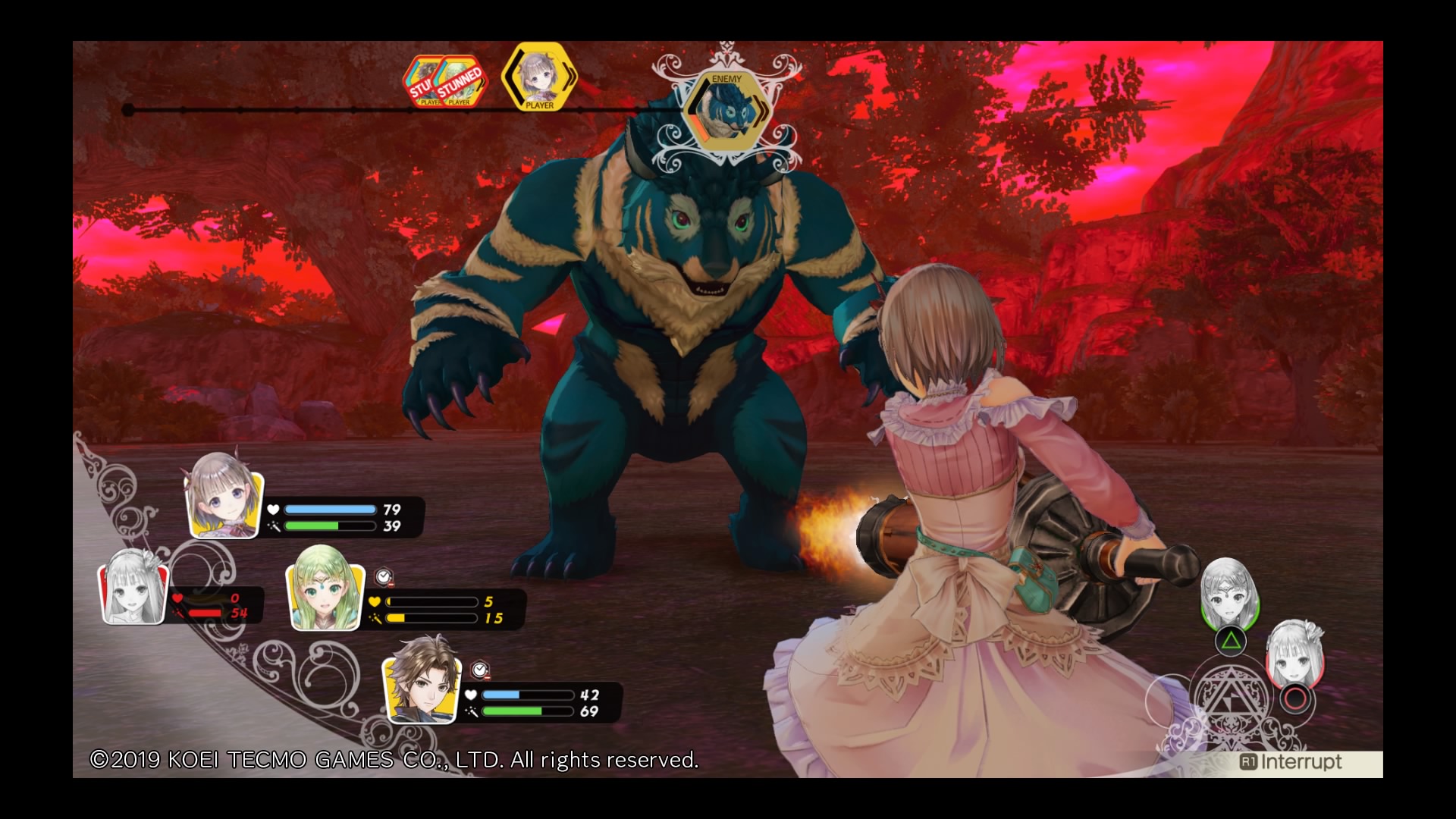
Similar to where to begin with The Legend of Heroes: Trails, many recommendations for where to start with Atelier center on how the series is split into different sub-series. There are some dimension-hopping crossovers in special entries, but for the most part, each trilogy stands alone. Where to begin may be dictated by how much you tolerate older releases and having time limits to complete the game, but from the PS3 onward, most are readily available on modern consoles via ports, and a lot can be bought in bundles for their respective sub-series. But, below, you'll find my picks and guidance.
Weekly digests, tales from the communities you love, and more
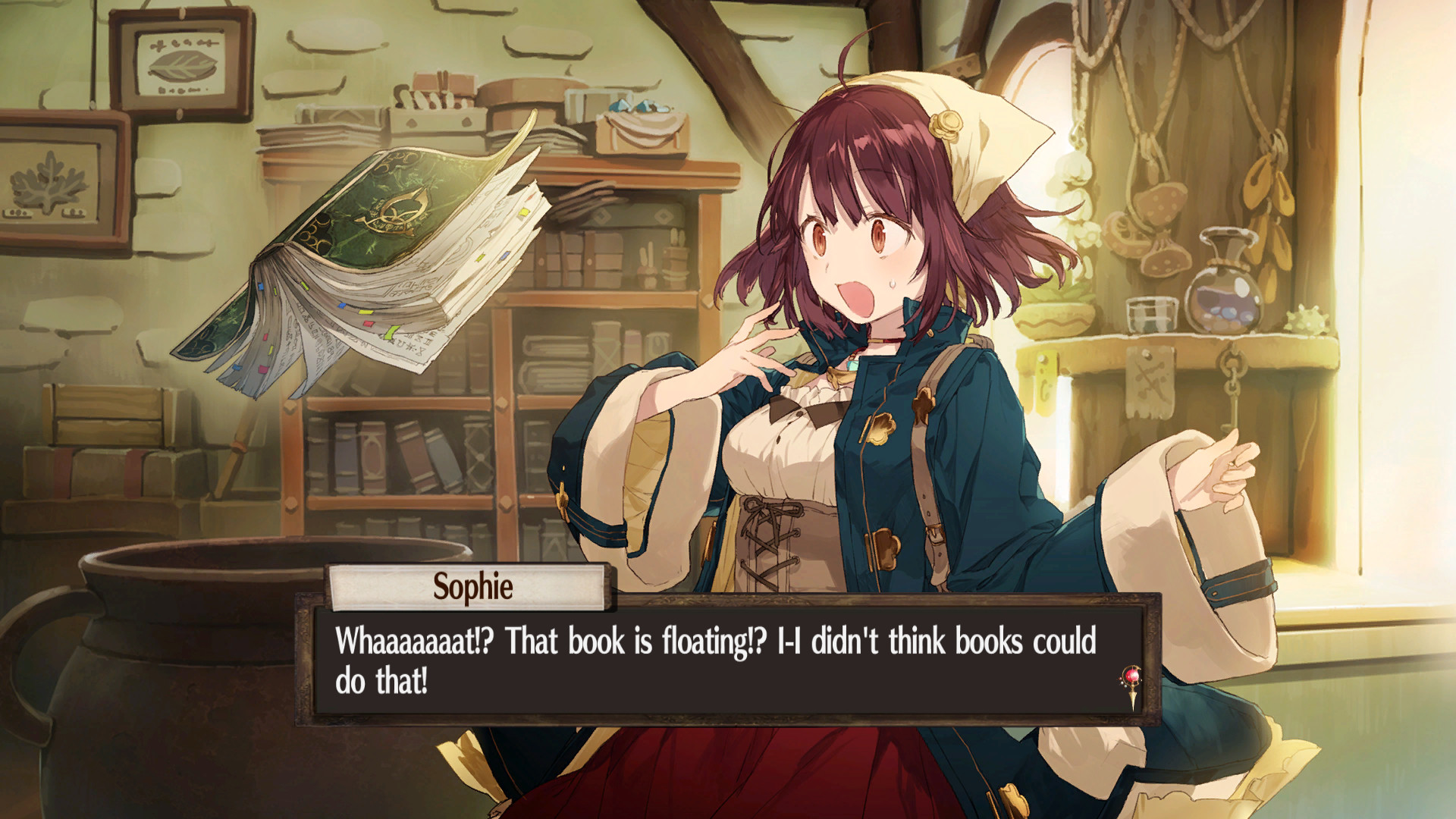
Atelier Sophie: The Alchemist of the Mysterious Book has remained, for the last 10 years, my main recommendation for where to start with Atelier. First released across PS4, PS3, and PS Vita in 2015, it's since come to PC and Nintendo Switch as well. The first game in the Mysterious series, Sophie's quest to unravel the, well, mysteries of her talking mentor book, Plachta, and to follow in her grandmother's footsteps as she helps out her hometown Kirchen Bell are compelling. There's no calendar time limit, which was removed in the game before this – but it feels like Atelier Sophie is where it began to solidify the modern style play cadence against its absence.
Alchemy here is performed using a grid-based system of color matching that's a lot of fun and easy to get a handle on. The small downside to beginning with Atelier Sophie is that the rest of the Mysterious series isn't nearly as good and goes off the rails a bit. However, Atelier Sophie tells its own, self-contained, great story and, as a bonus, a legacy sequel arrived in Atelier Sophie 2 in 2022 that might be my favorite in the entire series, following Sophie and Plachta through a dream world. Atelier Sophie is a great start that gives plenty of directions to grow.
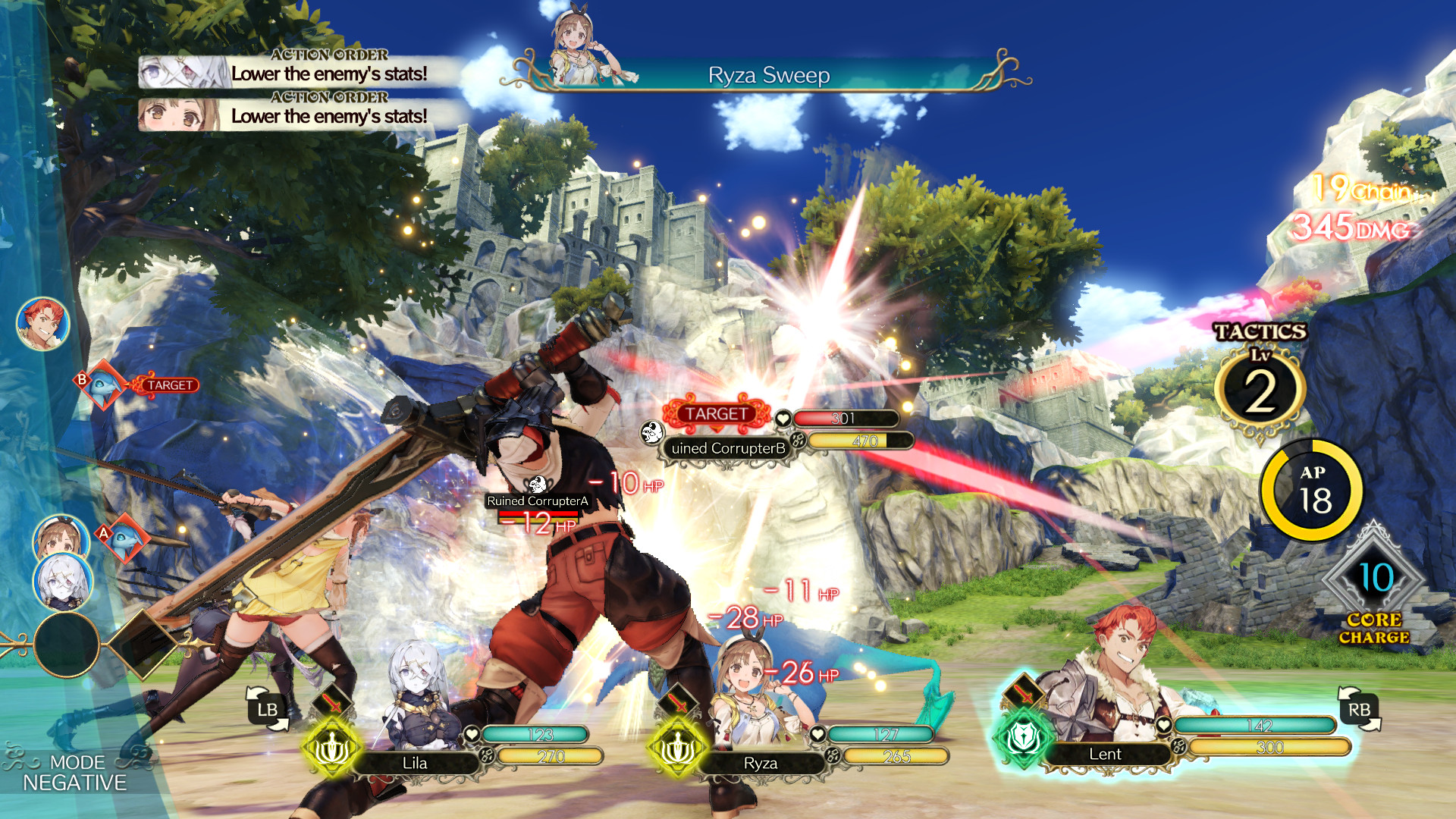
Atelier Ryza: Ever Darkness & the Secret Hideout is also an incredibly solid pick, especially for those looking for an easy-to-follow trilogy of entries that skew closer to traditional JRPGs in their format and structure. The first game in this trilogy was released in 2019. Following Reisalin Stout and her friends as they strike out beyond the confines of their slow-paced island life on Kurken Island, it revolves around her journey to learn alchemy as her friends also find their vocations, and to save her island and the kingdom from the 'Underworld' – a strange dimension that's seeping into Ryza's home.
Each game is meant to evoke the idea of summer memories of childhood, and the idea that though time passes between each game strong friendships persist across time. Alchemy systems here are fun, though they can sometimes feel backseated compared to dashing through dungeons, but in a way that makes the Atelier Ryza trilogy a strong place to begin for those wanting to ease into the series. The games are already available on PS5 (except for the first one), PS4, Nintendo Switch, and PC – and new DX versions are releasing on PS5 and Nintendo Switch 2 on November 13, 2025.
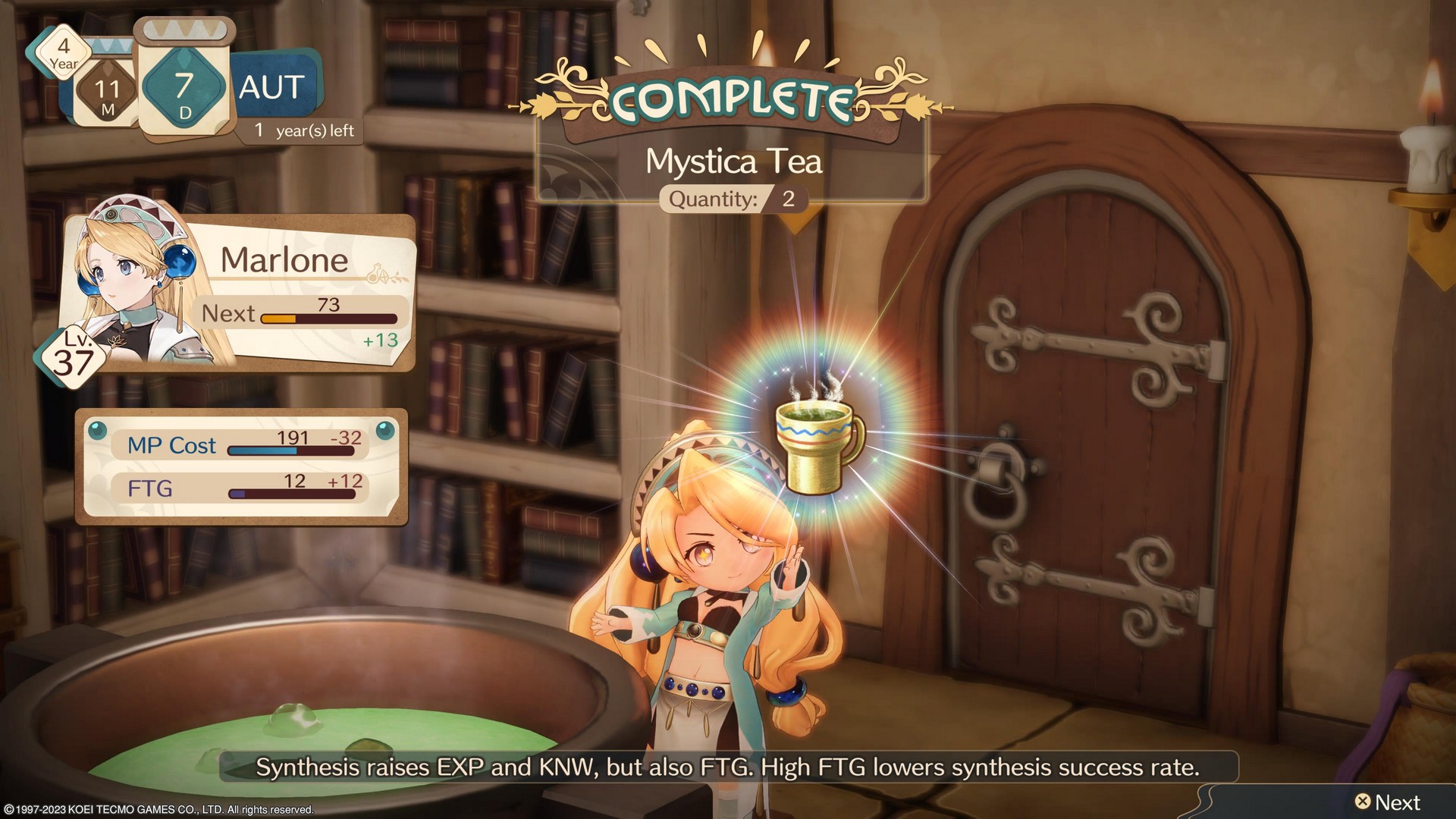
Atelier Marie Remake: The Alchemist of Salburg is another great angle to learn to appreciate the series (and is often bundled with a port of the PS1 original as a bonus). In terms of systems, this remake is pretty faithful, but gives everyone a chibi-style big-head look with ultra clean and pleasing colors, and environments take on a sort of diorama aesthetic. While the calendar-based time limit is here as Marie struggles to pass her alchemy exams, this is a great introduction to why the format really can work. With multiple endings, there's a lot to strive for, and as you get better at the game, it becomes easier to achieve (or maybe deliberately fail) ending conditions.
Though mechanics are much simpler in the original than later games, I think that can really work well for Atelier Marie Remake, which these days feels like an incredible distillation of the essence of Atelier – making it a perfect place to grow an appreciation for it. The downside is its direct sequels haven't been remade yet, and aren't available in English, but Atelier Marie is a complete tale in and of itself, so it's the perfect springboard to bounce into other Atelier games. Available on PC, PS5, PS4, and Nintendo Switch, it's easy to get into.
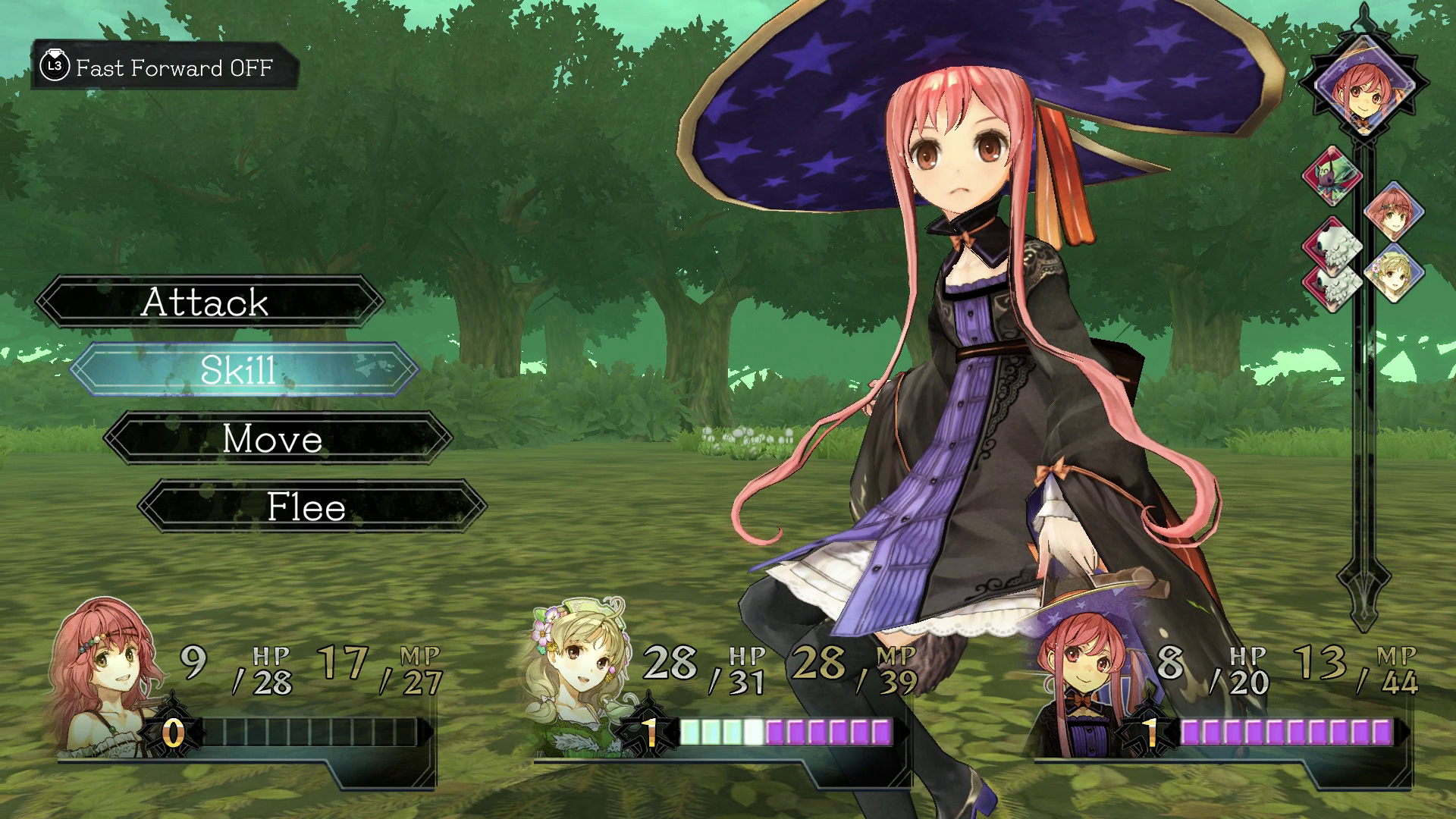
Atelier Ayesha: The Alchemist of Dusk is my final top recommendation, and should best serve you if you're really looking to get stuck into a modern Atelier game that still has a calendar time limit – the final game in the Dusk trilogy is actually where it was ditched for the first time. Atelier Ayesha, though, has a truly gorgeous watercolor art style, and an ethereal-yet-warm atmosphere as a result. It's not too punishing either, and exploring this world is really rewarding as you become more familiar with its systems. First released in 2012 across PS3 with a PS Vita port that followed, newer DX versions of the Dusk Trilogy are available across PC, PS4, and Nintendo Switch. Later Dusk games are all varied and ambitious in their own ways, too, making for a great little trilogy.
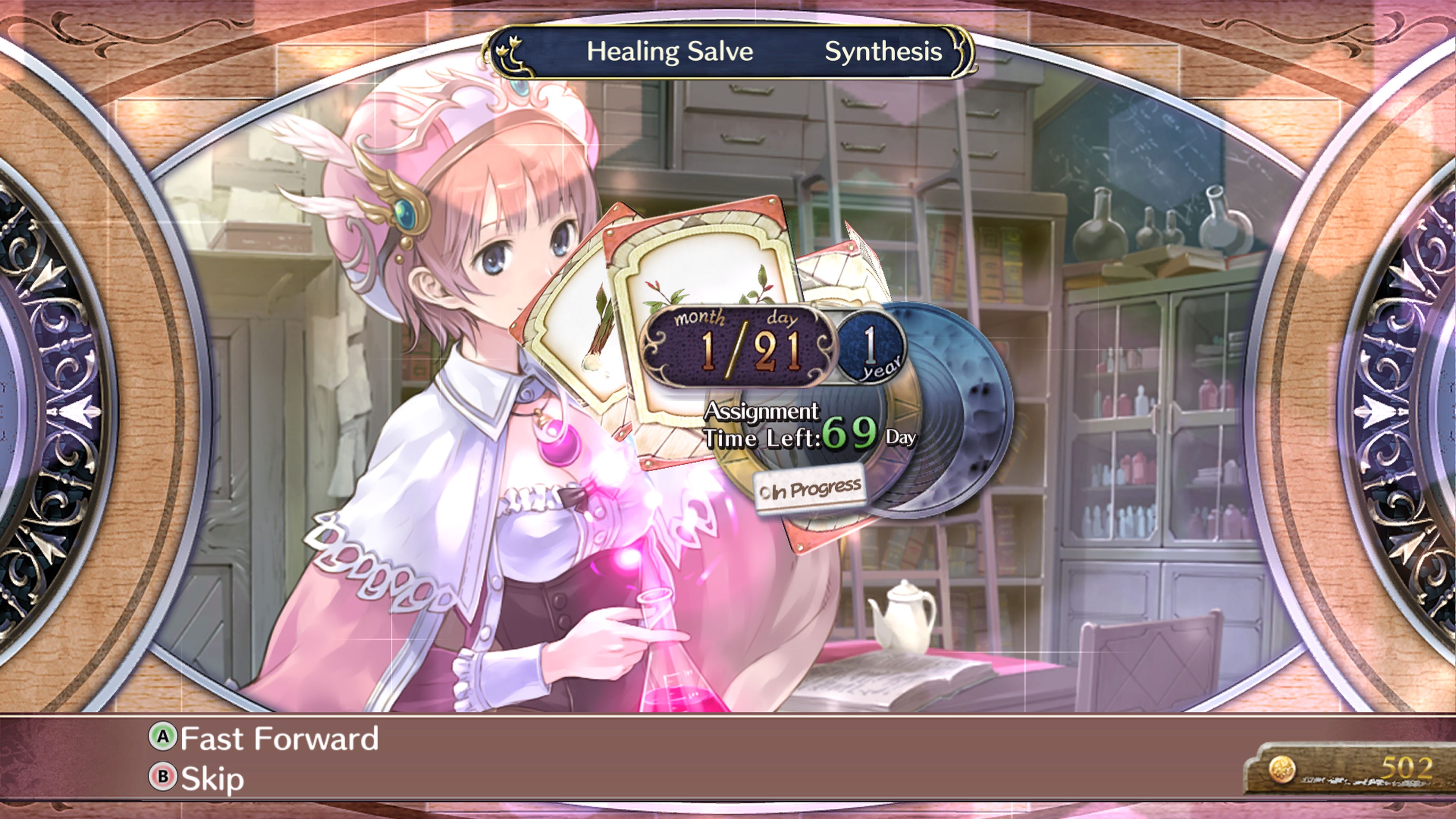
If that doesn't appeal, turning back the clock to 2009's Atelier Rorona: The Alchemist of Arland is another good shout – the Arland trilogy all having similar time-limit structures. Like Dusk, the Arland Trilogy also has DX editions on modern platforms. They have a legacy sequel in 2019's Atelier Lulua: The Scion of Arland, which is a bit of a wildcard beginner pick for me – it's simple to play, has an incredibly warm energy, and the callbacks to the previous Arland games can make it feel like a lived-in world.
What not to worry about before starting Atelier
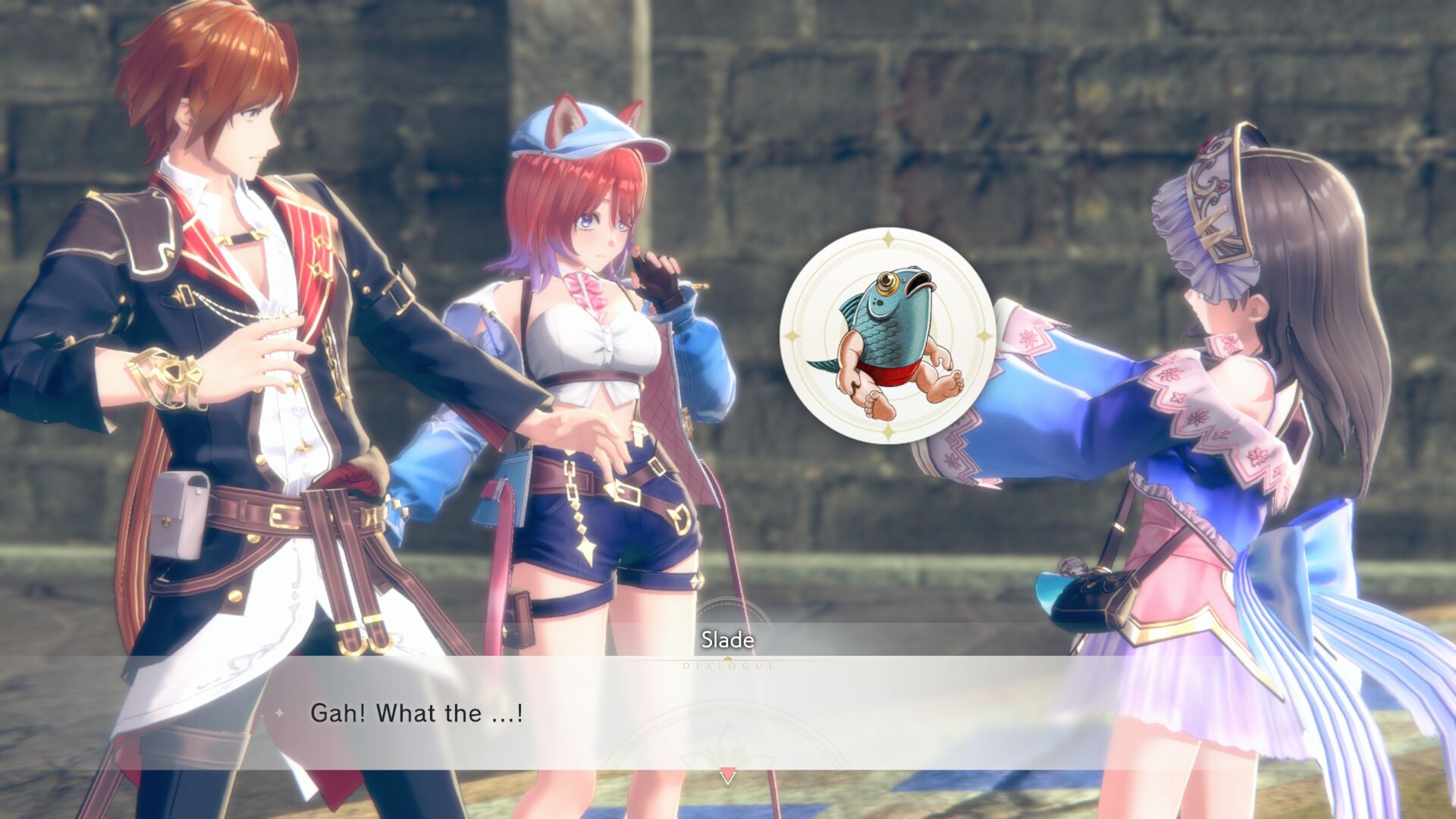
Outside of your tolerance for older school JRPG adventuring and whether you're willing to explore games with calendar-based time limits, there's not loads to worry about with Atelier. While there are a handful of direct sequels, even follow-ups within each sub-series usually center around a new protagonist with a fresh crew of supporting characters. For a series as long as this one, there's surprisingly little need to be deep into the weeds of lore. When things do crop back up, it's usually explained or not mega important to have the details.
The only exceptions are games that are explicitly about crossovers, such as the town-building spin-off Nelke & the Legendary Alchemists, or, good fun as it is, Atelier Resleriana: The Red Alchemist & the White Guardian (which is a pseudo-sequel to the series' now-sunset gacha mobile game). Even when it comes to the series' few direct numbered sequels like Atelier Sophie 2, the plot largely revolves around returning characters going to a new land and meeting new faces, so they can be mostly enjoyed as it is.
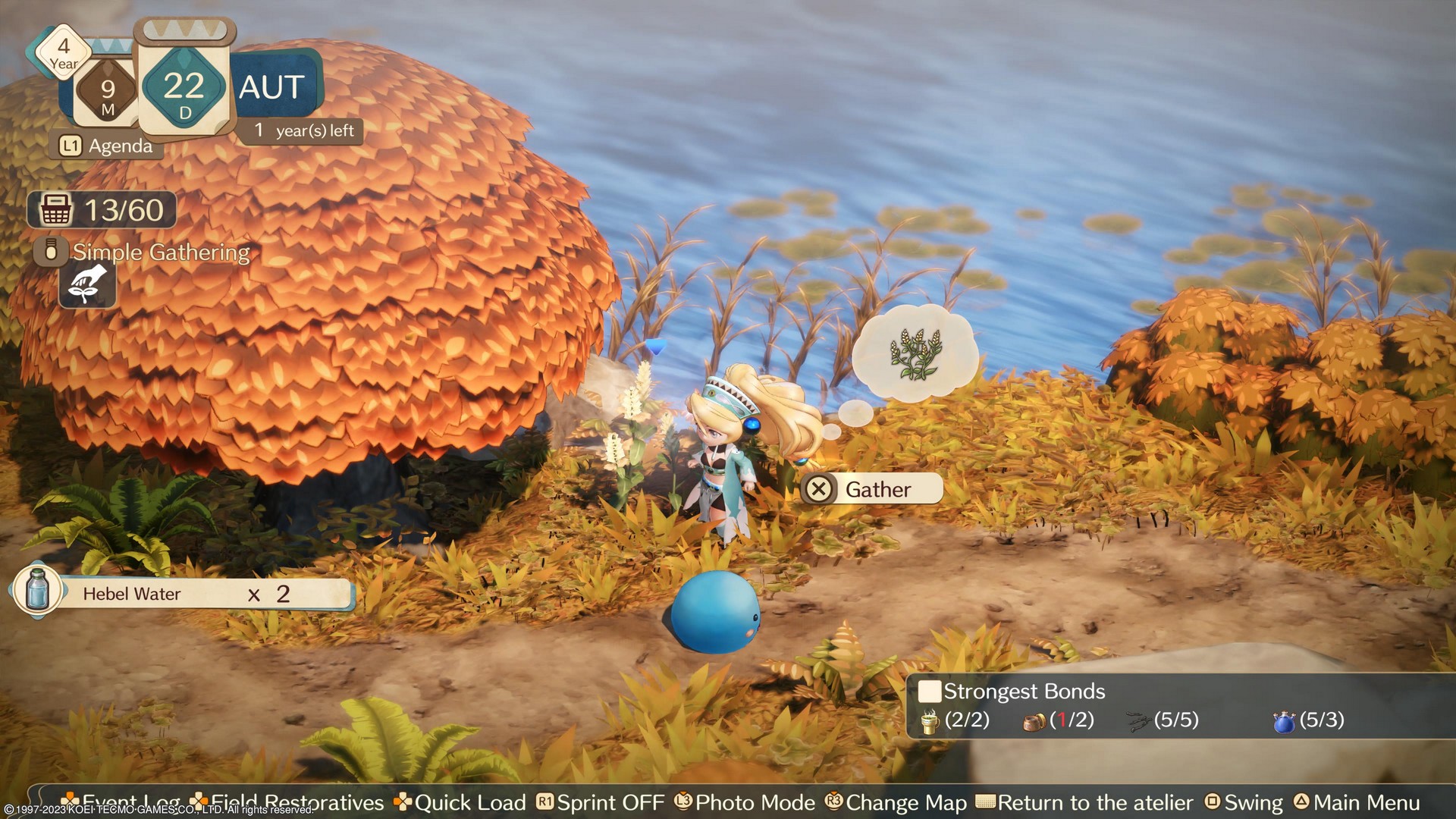
Which is all to say – don't worry about release order issues jumping in, though I'd still say you're best served with sticking to the order of games within subseries like Arland, Dusk, and Mysterious. I wouldn't worry much about Atelier before PS3, either (other than Atelier Marie thanks to the excellent remake). The classic games are good, but hard to recommend for beginners, and outside of the Iris and Mana series aren't officially available in English. Consider coming back to those after you try others first.
The biggest thing not to worry about with Atelier is feeling like you're bad at it. Modern releases have difficulty modes for a reason, for one. But also, every Atelier is about guiding a character through the process of learning alchemy – you too, are learning. At the start of the game, your healing salves will only cure light wounds, and your bombs will only do a little bit of damage – only through practice and leveling up will you be able to become a true cure-all and be able to blow all your enemies to smithereens with all manner of elemental strikes. Even the games with calendar systems shouldn't be stressed over. Failure will happen. But, as you learn, you'll be able to more easily meet requirements and master the challenges ahead.
Atelier games aren't 100-hour-long epics. All the entries are fairly breezy, and you should approach them the same way. A watched pot never boils, and a watched alchemy cauldron never synthesizes – take it easy, and enjoy the cozy, witchy vibes as you improve your craft step by step. With so much of Atelier readily available on modern consoles, there's never been a better time to get mixing.

Games Editor Oscar Taylor-Kent brings his years of Official PlayStation Magazine and PLAY knowledge to the fore. A noted PS Vita apologist, he's also written for Edge, PC Gamer, SFX, Official Xbox Magazine, Kotaku, Waypoint, and more. When not dishing out deadly combos in Ninja Gaiden 4, he's a fan of platformers, RPGs, mysteries, and narrative games. A lover of retro games as well, he's always up for a quick evening speed through Sonic 3 & Knuckles or yet another Jakathon through Naughty Dog's PS2 masterpieces.
You must confirm your public display name before commenting
Please logout and then login again, you will then be prompted to enter your display name.
